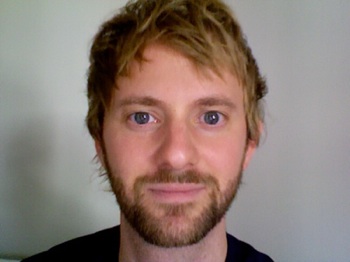To remember this idea after waking: An Interview with Christopher DeWeese

Recently released from Octopus Books, Christopher DeWeese’s The Black Forest is a slim, refreshing volume, intent on bending time and expectation in language carefully measured, calm and clear. It was described by James Tate as such: “These poems sock home truth and enact poetic somersaults that leave me out of breath. It’s a pleasure to recommend them to anyone brave enough. Chris DeWeese is the real thing, a poet true to his calling.”
BB: The Black Forest is your first book, while also one of many you have written over the years in coming up to it. Did you know this book was a specific project when you began the poems in it, or how did it come together as what it is?
CD: For three years while I was getting my MFA I only worked on this one thing, a sequence of poems called The Confessions. When I started that project, I had just been blown absolutely away by Berryman’s The Dream Songs and Berrigan’s The Sonnets, and I had this feeling that maybe writing a book-length poem was the solution to all of my problems. I remember at the time being very confused about how to write poems: before grad school, I had been writing pretty much on my own for a few years, and the poems I wrote were not very good, and all of a sudden I was around all of these people who seemed to already have really confident, singular styles, and I felt like I didn’t know what I was doing or (more importantly) even what I wanted to do in writing poetry.
The most helpful thing about just writing this one project for so long was that it gave me a stable architecture of form to write into. And that was huge for me, because I felt like just starting to write an individual poem was a process weighted down with huge decisions, decisions about form and content that needed to have complicated rationales lurking behind them. So for three years, I didn’t have to worry about that, because I was totally committed to just working on this one thing. And by the time I finished working on it, I was ready to realize that the way I had thought about the process of making poems before was actually totally wrong (for me at least) and that one good and valid way of composing poetry is to just start writing and to see what happens. So when I started writing the poems that would eventually compose The Black Forest, there were no ideas about the poems going together or belonging together as a certain project: there was just this feeling of freedom, and a desire to be loose and wild with my imagination. I had just started running when I began to write these poems, and a lot of the first lines would occur to me while running, and then I would spend the rest of the run saying the line over and over to myself to try and remember it, and by the time I got home the line would have achieved this power, this importance borne of repetition, so I’d write it down and often the rest of the poem would come out very quickly. And over time, I did realize that a lot of the poems I was writing belonged together, that they shared a lot of language and concerns, and it felt good to realize that the consistency of the book had come together in a fairly organic way. READ MORE >
New Action Yes is live, with a shitload of the good, including Juliet Cook, Peter Davis, Christopher DeWeese, Justin Dobbs, Claire Donato, Daniel Borzutzky, and a slew of speech. Eat it.
